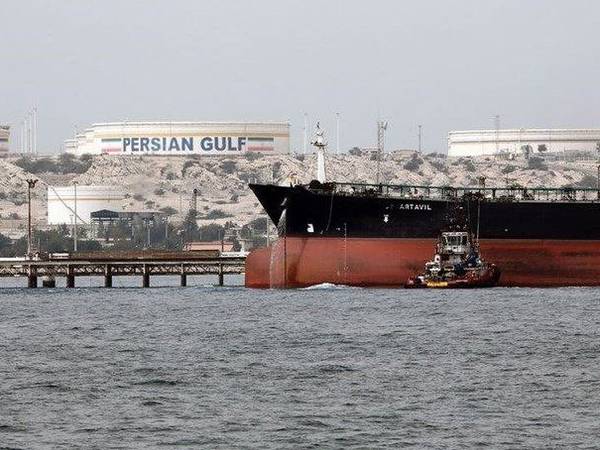Uncertainties in global energy were highlighted Sunday in a Bloomberg report that the United States may “turn more of a blind eye” to buyers of Iranian oil.
With oil prices up 50 percent in 2022 to almost $120 a barrel, Bloomberg reported a claim from Vitol Group, the world’s biggest independent crude trader, that the US might want to see more Iranian oil flow given mid-term elections looming in November.
Washington has since 2018, with its ‘maximum pressure’ sanctions, threatened punitive action against any third party buying Iranian crude or dealing with Tehran’s financial sector. While this slashed Iran’s exports from 2.5 million barrels per day (bpd) in 2017 to 400,000 bpd in 2020 with many buyers wary of being punished by the US, Iran is now selling around 800,000 bpd, mainly to China, and has developed means of hiding the trade from prying eyes.
Opec+, led by Saudi Arabia and Russia, agreed last week to accelerate output increases and President Joe Biden’s scheduled visit to Riyadh, although postponed until July, may signal an improvement in strained Saudi-US relations even if Riyadh maintains its good relations with Moscow.
But Vitol’s head of Asia Mike Muller told Bloomberg that prospects for the global oil market were confused by constraints on Russian exports and by production weaknesses across Opec. “There are people who think the market’s going to $135-$140 a barrel,” he said. “And there are people who think we’re going below $100 again.”
US gasoline hits $4.80
Analysts and diplomats are sanguine over prospects for renewing the 2015 Iran nuclear deal, the JCPOA (Joint Comprehensive Plan of Action), which would require the US ending ‘maximum pressure’ and lead to an additional 500,000-1 million bpd of Iranian oil reaching world markets.
Iran has around 100 million barrels in storage that could be eased onto the market even more quickly should the US turn a “blind eye” and ‘allow’ Iran to sell more oil. While Republicans and many Democrats oppose easing any Iran sanctions, especially ahead of Tehran returning its nuclear program to the limits set by the lapsed JCPOA, gasoline reaching $4.80 a gallon in the US, up from $3.80 in late February, piles political pressure on Biden and the Democratic Party.
Muller told Bloomberg he did not expect the US seizure of an Iranian-flagged vessel off Greece last month, which prompted Iran to detain two Greek tankers in the Persian Gulf, to signal more US tanker seizures.
Lawrence Norman of the Wall Street Journal tweeted that a well-informed source dismissed Vitol’s report that the Biden Administration might ‘allow’ Iran to sell more oil.
Critics of the Biden administration and supporters of ‘maximum pressure’ have accused the US of being lax in not taking more punitive action against buyers of Iranian crude. Nonetheless, Jason Brodsky, of the advocacy group United Against a Nuclear Iran, dismissed the Bloomberg report as “speculation.”
